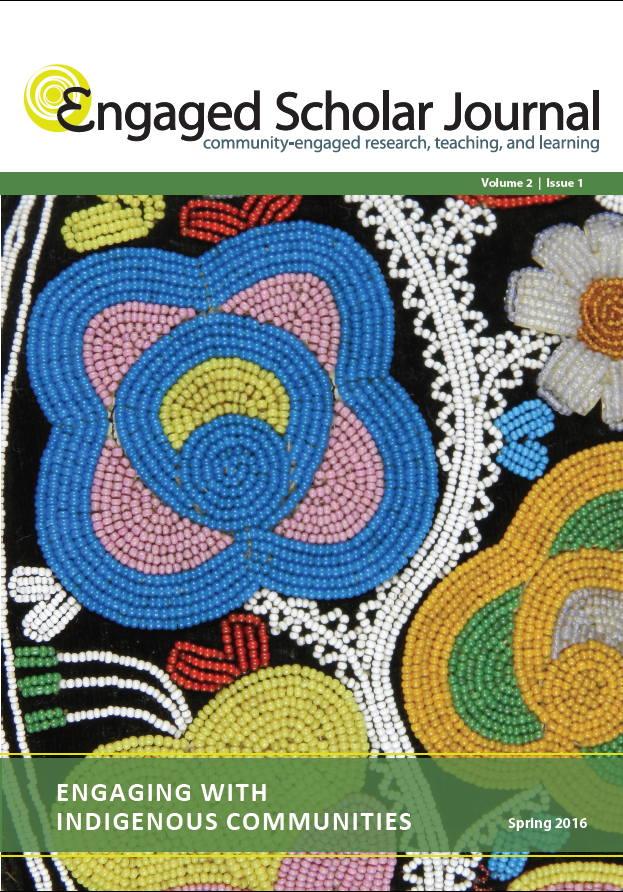Co-Producing Community and Knowledge: Indigenous Epistemologies of Engaged, Ethical Research in an Urban Context
DOI:
https://doi.org/10.15402/esj.v2i1.207Keywords:
Urban Indigenous community, research ethics, community-based participatory researchAbstract
Until recently, the specific and unique ethics considerations of research with the large and diverse populations of Indigenous peoples living in cities have not been adequately addressed. With its emphasis on respect, responsibility, and beneficial outcomes for research participants, community-based participatory research (CBPR) has been described as intrinsically ethical, and in many cases, consistent with a generalized understanding of Indigenous moral values. Through a retrospective reflection on community-engaged research in the urban context of Toronto, this essay examines critically transformations in the conceptualization of ethical research and of CBPR with Indigenous peoples. Historical analysis of urban Indigenous community epistemologies is presented as a dynamic process which informs ethical practice in the production of both community and of knowledge. Community-initiated and implemented research highlights the complexities in urban Indigenous authority-making, complicates contemporary
Downloads
Published
How to Cite
Issue
Section
License
Authors who publish with this journal agree to the following terms:
- Authors retain copyright and grant the journal right of first publication with the work simultaneously licensed under a Creative Commons Attribution License CC BY 4.0 that allows others to share the work with an acknowledgement of the work's authorship and initial publication in this journal.
- Authors are able to enter separate, additional contractual agreements for the non-exclusive distribution of the journal's published version of the work (e.g., post it to an institutional repository or publish it in a book), with an acknowledgement of its initial publication in this journal.
- Authors are permitted to post their work online (e.g., in an institutional repository or on their website) after the publication of their work in the Engaged Scholar Journal.
- Please note that while every opportunity will be taken to ensure author participation in the editing process, due to time constraints final copyediting changes may be made before publication to ensure APA adherence throughout all submissions.




